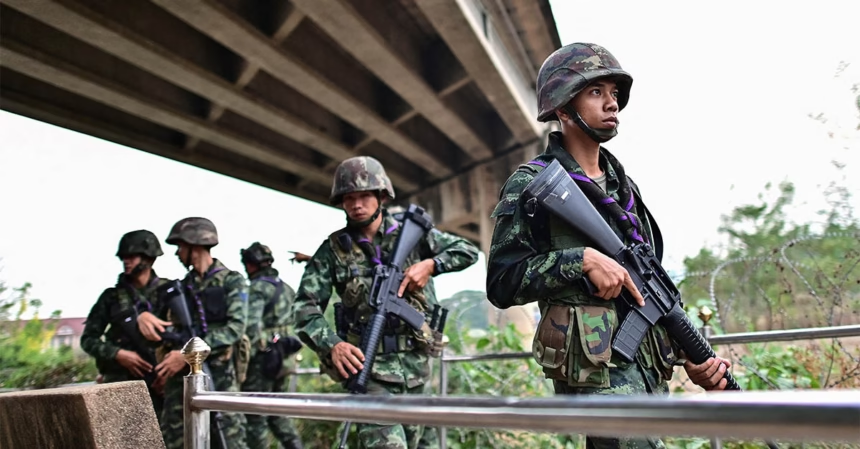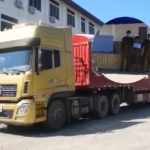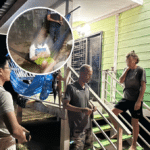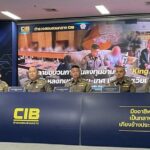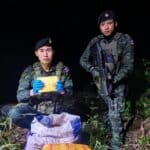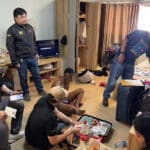MYAWADDY, Myanmar – The crack of artillery rolled across the Moei River last week as Myanmar’s military stormed KK Park. The vast 210-hectare compound, perched beside the Thai border, has long served as a hub for global fraud.
For years, it trapped thousands in forced work, abuse, and high-value scams. After driving out Karen National Union (KNU) rebels who briefly seized the site, the army raised its flag over what had seemed untouchable.
The push began on 19 October 2025 and moved fast. Backed by allied ethnic forces, the junta battled KNU fighters who had turned KK Park into a forward base since August, part of a war that has been going on for years. Explosions lit the night, seen from Thailand’s Mae Sot across the muddy river, where people hid in their homes. By dawn, outgunned Karen troops had pulled back in chaos, leaving burnt buildings and shattered barricades.
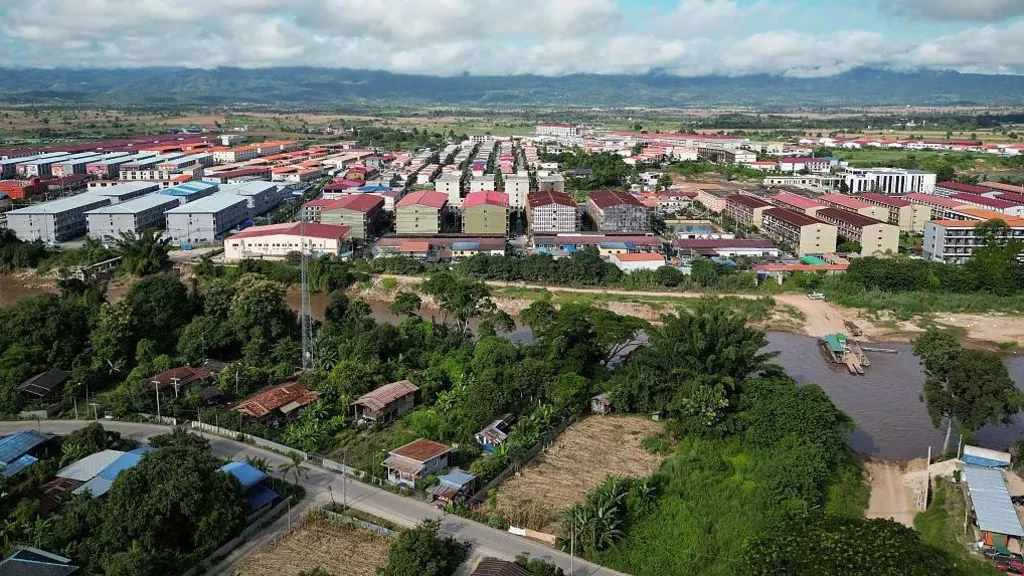
KK Park Myawaddy, Myanmar
KK Park sits just south of Myawaddy in Kayin State, where militias, smugglers, and armies overlap. Built in 2020 under a murky lease from the KNU to Hong Kong-listed Huanya International, it soon became a fortress for online fraud. Chinese crime groups, guarded by local militias and long tolerated by the authorities, built a self-contained town of villas, hospitals, dorms, and call centres.
Recruits trafficked from across Asia and Africa, promised high pay, found themselves locked to desks and forced to run pig butchering scams, romance cons that drained victims through fake investments. UN estimates suggest such networks pull in up to 64 billion dollars a year. KK Park sat at the centre, with crypto laundering and Starlink kits enabling cross-border transfers and hidden sites.
As soldiers swept through, the human toll came into view. More than 2,000 people, both coerced workers and willing staff, were rounded up into holding areas. Hundreds of Chinese nationals, described by officials as the core operators, were shackled on allegations of online gambling and fraud. BBC News claimed victims were rescued.
Witnesses described panic. “People were screaming, trampling each other to reach the river,” said one escapee in Mae Sot, who spoke on condition of anonymity. “They thought Thailand was safety, boats flipped, some drowned in the rush.” Those who reached Thailand’s Mae Ku Mai Tha Sung subdistrict were detained by border police, their relief cut short by immigration checks.
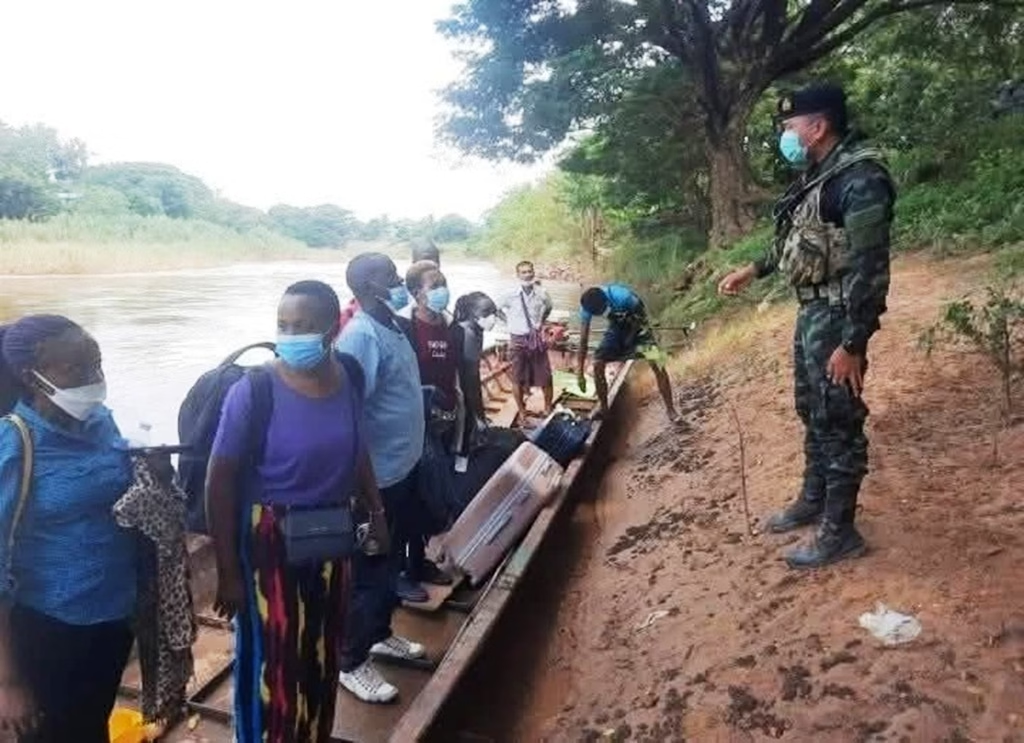
Kenyan Nationals Escape KK Park
The campaign, branded Operation Clean Sweep, was no act of charity. Major General Zaw Min Tun accused KNU leaders of profiting from the rackets, calling them terrorists who had seized the park without consent. Analysts read the move differently. With staged elections due in December, the generals want Myawaddy back under tight control.
The border trade route with Thailand is worth about 4 billion dollars a year. Seized kit from KK Park, including 30 Starlink terminals, laptops, and servers, makes for helpful propaganda. Critics call it theatre. “This is the junta laundering its image,” said Jason Tower, Myanmar director at the United States Institute of Peace. “They have long looked away while these sites generated income. Now, with Beijing pushing hard, they want to look like enforcers.”
Abuse has not stopped with the raids. Detainees include Vietnamese coders and Ethiopian interpreters. Their fate in military custody is uncertain. Reports from aid groups and relatives describe beatings and extortion. Families abroad are told to pay release fees of 10,000 to 30,000 dollars, then lose contact again.
Kenyan survivors have shared grim accounts that read like wartime horror. “They chained us, shocked us with batons for missing quotas,” said Peter Mwangi, a 28-year-old taxi driver from Nairobi, freed in February after six months inside KK Park.
“One girl, Grace Mata, 22, begged for water. They beat her until she stopped moving. Rumours say they took her organs in the on-site clinic.” Mata died in a Mae Sot hospital last November, and her body was returned to Kenya in a sealed coffin.
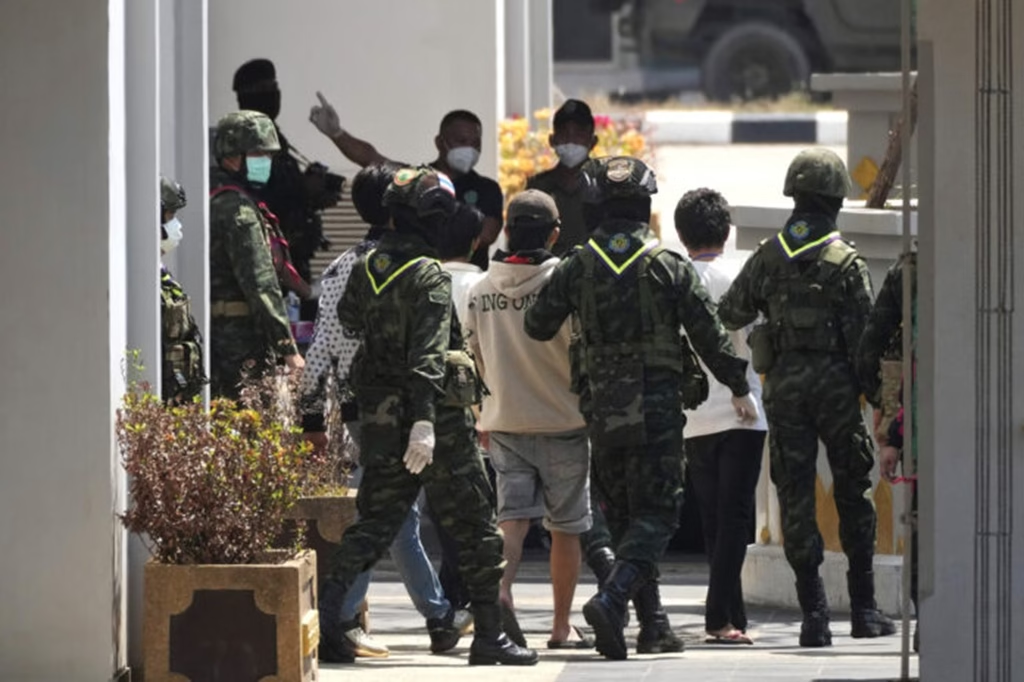
Junta Soldiers Round Up Foreigners
The Democratic Karen Buddhist Army (DKBA), a pro-junta faction split from the KNU, supplied intelligence and fighters for the raid. Their role is under new scrutiny. In the confusion after the assault, several Kenyans and Ugandans captured during the KNU’s brief hold were handed to the DKBA.
Sources linked to anti-trafficking groups say these foreigners, accused of aiding rebels, have faced interrogations with waterboarding and isolation. “They are beaten daily, starved, and held in DKBA barracks near Myawaddy,” said a Global Alms worker in Mae Sot, requesting anonymity. None have been released.
The junta says they are being processed for deportation, but it is torture by proxy.” Kenyan diplomats, already stretched after 175 repatriations this year, have protested. Naypyidaw has not replied.
Today, KK Park sits quietly. Troops occupy 200 buildings. Checkpoints cut across pristine lawns. It feels like a win on paper, but the fraud networks have scattered. Many are tied to Chinese triad groups, including 14K. They have moved operations to safer ground. Shwe Kokko, 24 kilometres north, remains active.
The site, opposite Ban Wang Pha in Thailand’s Mae Ramat district, is held by the Karen Border Guard Force, now rebranded as the KNA, under warlord Saw Chit Thu. The United States sanctioned him in May for enabling cyber fraud empires.
The KNA says it has repatriated 7,968 foreigners since February, with 20,000 more on lists. Locals say underground operations continue, powered by hidden generators and satellite dishes. “Shwe Kokko’s lights never fully dimmed,” said a Thai border official. “They fix and move faster than we can cut the wires.”
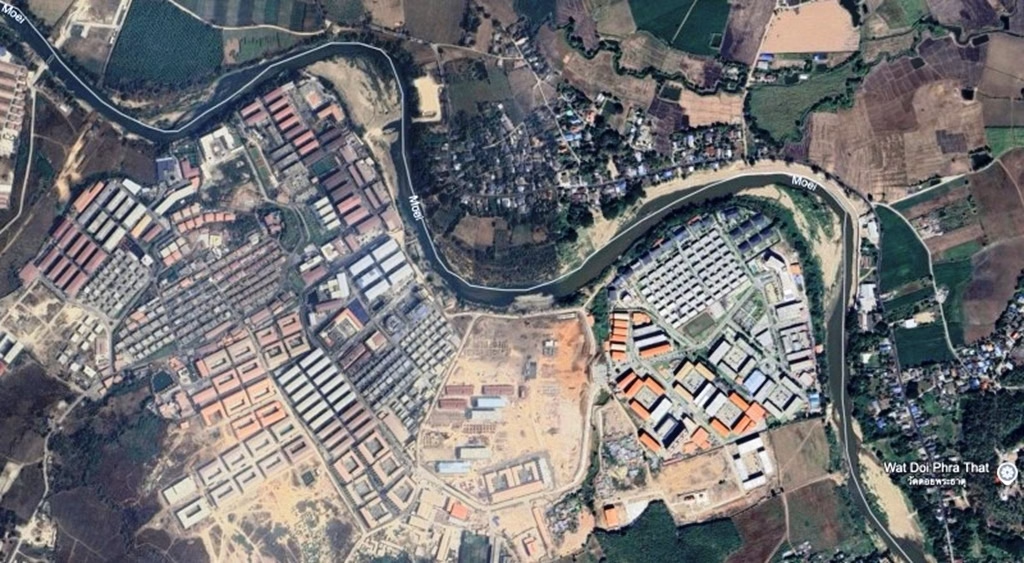
Satellite Images of KK Park
Pressure from Beijing has helped force action. Chinese citizens feature heavily among the trafficked, and cases like the kidnapping of actor Wang Xing from KK Park drew fire at home. Authorities across the region have sent back more than 53,000 Chinese nationals.
Still, the problem endures. Satellite images point to 27 scam clusters in the Myawaddy area, growing by about 5.5 hectares per month, despite official promises. In Thailand’s Tak province, the spillover is stark. Shelters face rising numbers of migrants, many without papers, traumatized and in need of care.
For those still trapped, hope is thin. Kenyans held in DKBA cells, Chinese coders traded like goods, Vietnamese and Burmese workers caught between arrest and abuse, all face a bleak choice. “Help me, help me,” read a note smuggled out of Shwe Kokko, echoing thousands of pleas.
As the generals polish their image for a vote, Myanmar’s borderlands remain a brew of crime, conflict, and fear. The fall of KK Park makes headlines. The machine behind it has not gone away. Unless China, Thailand, and Western partners act together with real pressure and genuine support for victims, the scam camps will shift and grow, leaving more broken lives behind.




